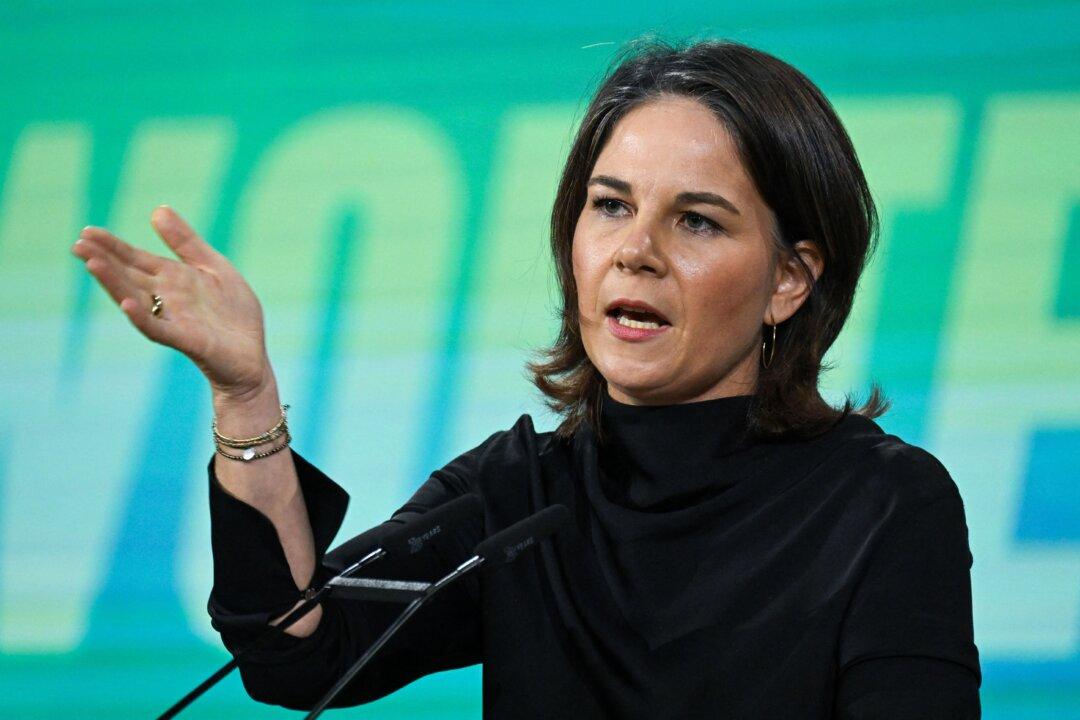Germany must avoid repeating with China the mistakes that it made in its relationship with Russia over recent years, the German foreign minister said on Oct. 18.
“We must first of all learn from the mistakes of our Russia policy of recent decades,” Annalena Baerbock said at a foreign policy forum in Berlin organized by the Koerber Foundation think tank. “I say very clearly that one-sided economic dependence exposes us to political blackmail.”




